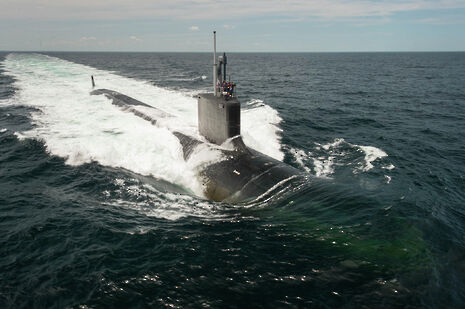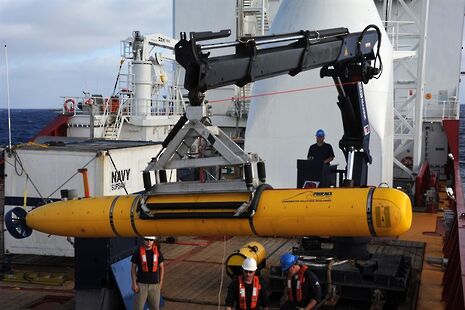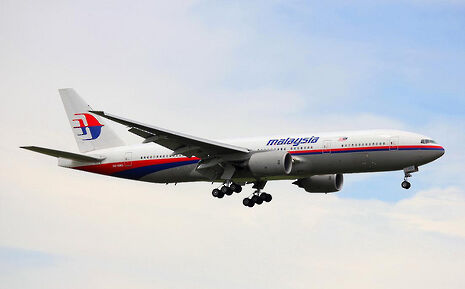Death is often random, messy and unplanned. Disasters remind us of this
A week ago, an Argentine submarine with 44 people on board lost contact with the mainland. Peter Chappell comments on what it must be like to be left behind

Editors’ note: This article was written prior to the reports of 23 November, which suggest that the San Juan may have been destroyed in an explosion shortly before it was reported lost.
What would you do if, stuck in a submarine hundreds of metres below the surface, you had one day worth of oxygen left? This is the question which may have faced the 44 men and women of the Argentinian San Juan submarine, which has been lost at sea for over a week. Ships and planes from five countries have been sent out. Their search area, the haystack in which to find the needle, is the size of the state of California. Last radio contact was made a week ago, when it was 430km off the coast of the southern province of Chubut.
On the sixth day the navy spokesman, Enrique Balbi, said there were no reports of problems from the submarine. There is just silence. As a result, the submarine cannot yet be termed ‘lost’. “The latest official and reliable information is that the submarine has not yet been found. It’s not that it’s lost: to be lost you’d have to look for it – and not find it,” he said.

For the families left behind, the pain is unimaginable. When a loved one dies, they have been lost to you. When they disappear at sea, when you can’t see and touch their dead body, it must feel like they have entered a different world. “We are praying to God and asking that all Argentinians help us to pray that they keep navigating and that they can be found,” said Claudio Rodríguez, whose brother is a crew member. “We have faith that it’s only a loss of communications,” he told local television. When a loved one enters into this new world, there exists a possibility, however small, that it was all a big misunderstanding; that they may come back.

Among those onboard is Argentina’s first female submarine officer, Eliana Krawczyk, a 35-year-old weapons officer. “Let us pray that nothing has happened to any crew member. At sea, they are all brothers, and a submarine carries more risk than a ship,” her father, Eduardo, told Todo Noticias TV. For Eduardo Krawczyk, there is no fixity, no finality to punctuate his daughter’s death. There are “likelihoods”. The Argentinian tragedy reminds me of the Greek myth of Antigone. Creon, the new ruler of Thebes, demands that the rebellious Polyneices must not be buried. He decrees that the body is left out beyond the city walls to be picked over by birds and dogs for carrion. Antigone, distraught, pleads to give her brother a proper burial. We have a deep desire to place people in death; people are buried in the earth, or have their ashes scattered in a place of emotional importance.
Three years ago Flight MH370 went missing over the Indian Ocean. The operation to find it is the biggest and more expensive aviation search in history. Metal fragments have washed up on the island of Réunion, like echoes of the disaster. Submarines, planes, cruise ships: these are symbols of humanity’s mastery of the natural world and their hulking, inelegant movements guarantee our defence against Mother Nature. The Titanic sank, but that was 100 years ago. We’ve moved on a bit since then, haven't we?
When I get on a plane I comfort myself with the statistic that I’m more likely to die in a car accident than a plane. My first response to MH370 was a disbelief that that could even happen. Hadn’t ‘they’ fixed that yet? I’m not comfortable with people sitting back and saying “well, that’s mother nature for you, isn’t it” because it doesn’t feel good enough — it implies you understand the ‘natural world’. A video, below, has been released showing the conditions with which the rescuers are battling with. The boat is shown being tossed back and forth like a toy by gigantic waves.
This is death but not as we now know it. It’s random, unplanned, messy, quiet. When we think of death we think of an elderly person in an NHS bed, monitored, dosed up, accepting visitors at certain times. In the twentieth century, we have sterilised and sanitised our final moments using technology. In our age of infinite babble, of CCTV and limitless knowledge, the stories of mass disappearances doubt our fervent faith in technology. The search continues for the San Juan submarine
 News / Caius mourns its tree-mendous loss23 December 2025
News / Caius mourns its tree-mendous loss23 December 2025 Comment / Yes, I’m brown – but I have more important things to say22 December 2025
Comment / Yes, I’m brown – but I have more important things to say22 December 2025 News / Cambridge welcomes UK rejoining the Erasmus scheme20 December 2025
News / Cambridge welcomes UK rejoining the Erasmus scheme20 December 2025 News / CUP announces funding scheme for under-represented academics19 December 2025
News / CUP announces funding scheme for under-represented academics19 December 2025 Interviews / Politics, your own way: Tilly Middlehurst on speaking out21 December 2025
Interviews / Politics, your own way: Tilly Middlehurst on speaking out21 December 2025









